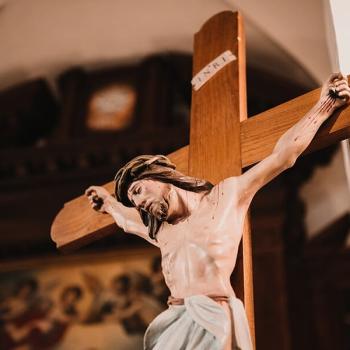By Bruce Epperly
There is a long-standing discussion about the role of the secular world of governments and businesses in the life of the church. Many congregations display American flags in their sanctuaries while others have chosen to display the flag in social halls or take the flag down altogether in church buildings. There is merit to both positions: on the one hand, the church is always located in space and time, and shares in the rough and tumble world of government, politics, and foreign policy as the Hebraic prophets proclaim; on the other hand, God’s love embraces the whole earth, rather than focusing on any nation’s cause or victory. As Abraham Lincoln noted in a time of war: we need to pray that we are on God’s side, rather than that God is on our side! God’s care embraces the whole earth, including our nation’s “enemies.”
Still, in many congregations, congregants expect that our nation’s veterans be remembered in light of their sacrifices for our nation’s well-being. While I am not a flag waver myself, and affirm a cosmic rather than national gospel, an embodied and incarnational theology needs to take the affairs of state seriously, both in terms of prophetic critique and grateful affirmation. Instituted in gratitude for victory in World War I, Woodrow Wilson made the following affirmation regarding Armistice Day, the precursor to Veterans Day:
To us in America, the reflections of Armistice Day will be filled with solemn pride in the heroism of those who died in the country’s service and with gratitude for the victory, both because of the thing from which it has freed us and because of the opportunity it has given America to show her sympathy with peace and justice in the councils of the nations.
While such words can be seen as platitudes, they remind us that “peace” and “justice” should be the goal of all national policies. They also remind us, in a time of growing individualism and me-first politics and economics, that national health depends on sacrifice — not just in times of war, but in our civic responsibility, human rights, and tax paying. Ironically, some of the people who most vigorously wave our flag are the most self-interested when it comes to our nation’s responsibility to support its most vulnerable citizens.
Veterans Day is about gratitude and stewardship. On Veterans Day, we proclaim our gratitude to those whose service in the military has secured our freedoms through the years. Whether or not we approve of our nation’s foreign policy, we need to support the everyday people — mostly working class, often minority — who fight our nation’s wars. We need to say “thank you.” But our thanksgiving should lead to action, both in support of the well-being of veterans, especially those who have been injured or traumatized by war, and in our own commitment to the common good and our nation’s care for its most vulnerable citizens, those for whom our soldiers sacrifice.
It is easy, as the prophets and Jesus both noted, to speak of sacrifice, without making the commitment to sacrifice for the well-being of our neighbors. When Veterans Day is understood in the spirit of the biblical tradition, it reminds us that there is no such thing as rugged individualism or absolute property rights; everything is a gift from God to be used for the well-being of others as well as our own kin. Sacrifice is not just the responsibility of veterans; it is required of all who would follow the way of Jesus. In the spirit of Wilson’s proclamation, justice and peace should guide our national and personal decision-making. Accordingly, remembrance of the sacrifices made by veterans challenges us to ask: Do our actions promote the overall well-being of our nation’s peoples and this good earth? Do we focus on our own welfare to the exclusion of our neighbor? What are we willing to sacrifice so that others may live abundantly? God’s vision of abundant life is always about “us” as well as “mine.”
So, on Veterans Day, let us be grateful and let our gratitude inspire us to generosity and commitment to the well-being of our nation, most especially its most vulnerable citizens and veterans who suffer the ravages of war. Then, our love of nation will take us beyond nationalism or self-interest to the affirmation of our role as God’s partners in healing the earth.
Bruce Epperly, a regular contributor to Patheos.com, is Professor of Practical Theology at Lancaster Theological Seminary and co-pastor of Disciples United Community Church in Lancaster, PA.
















